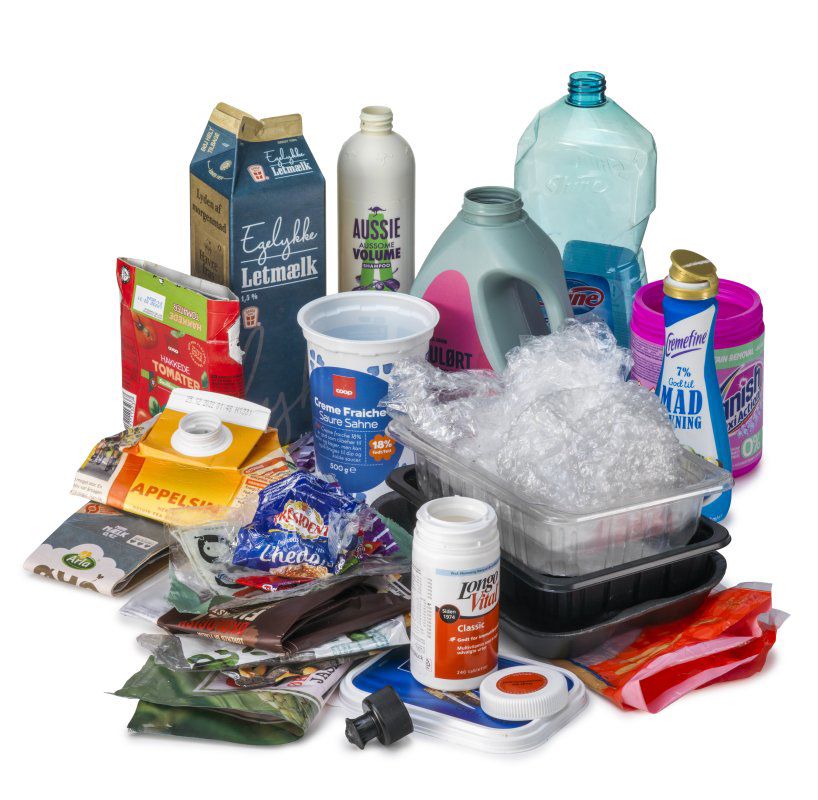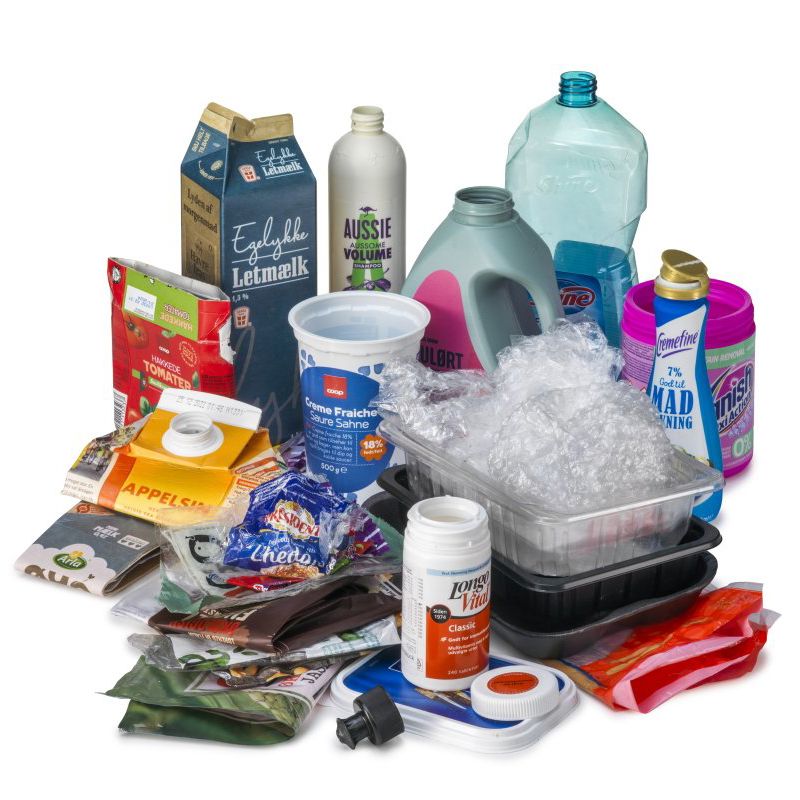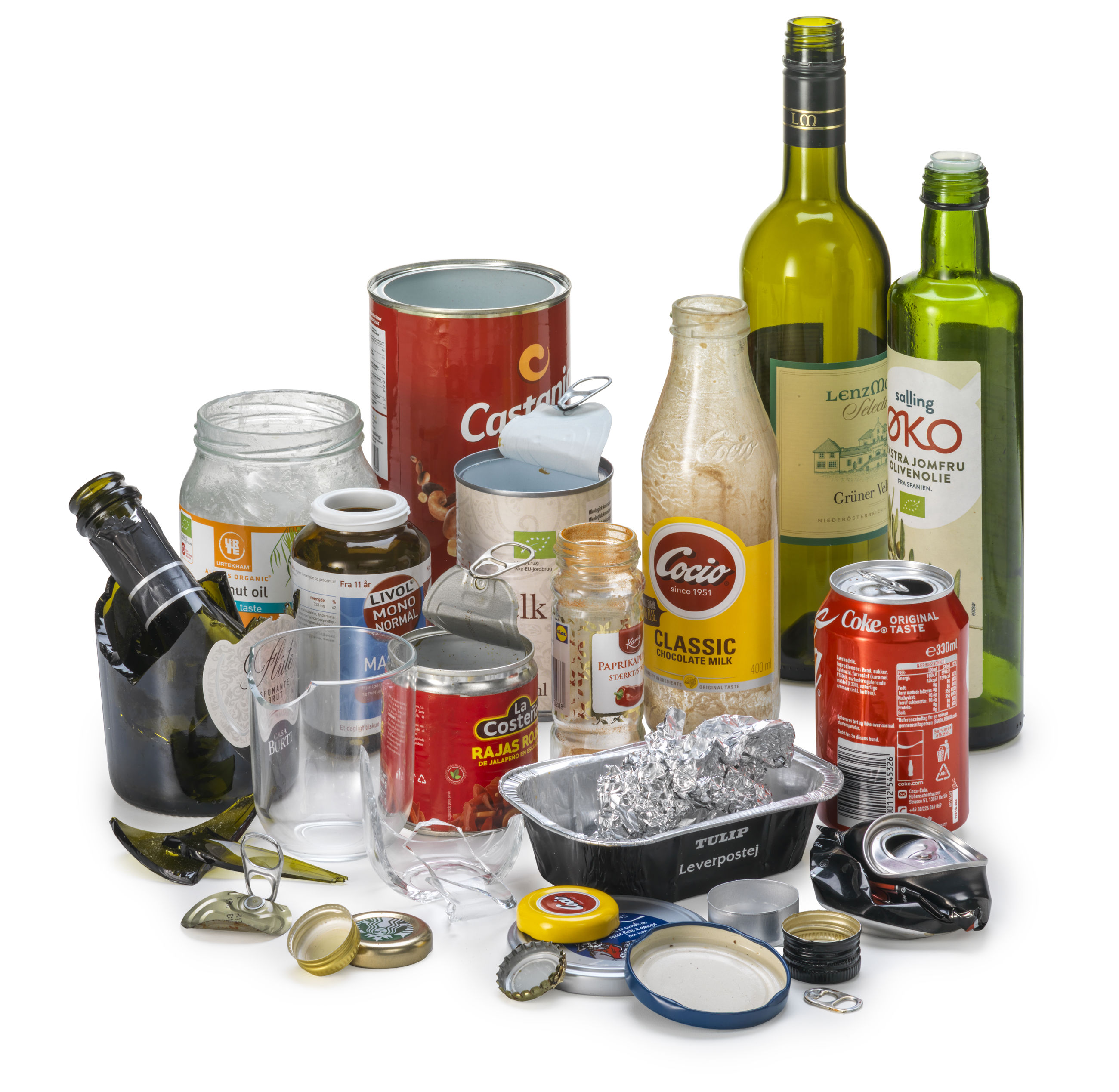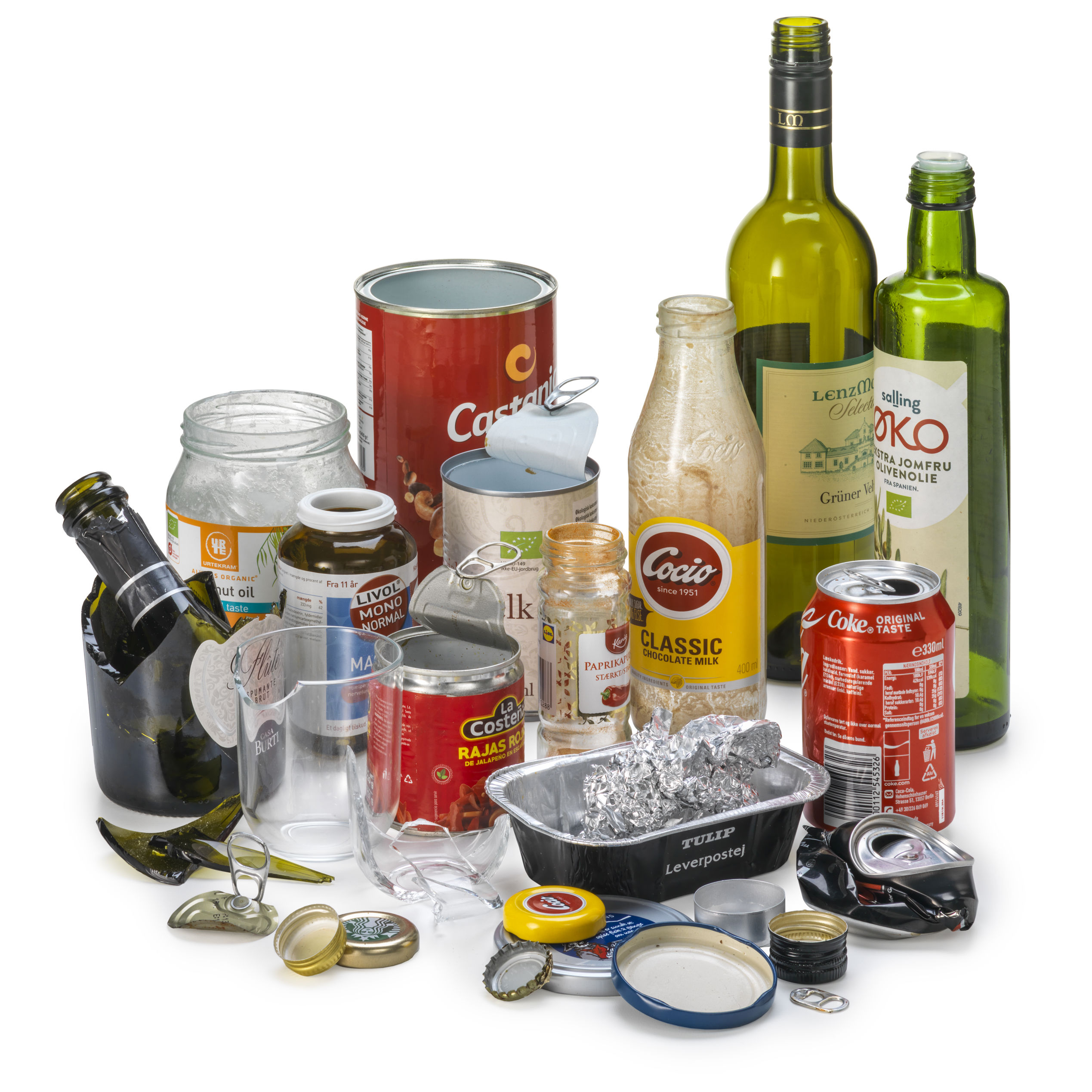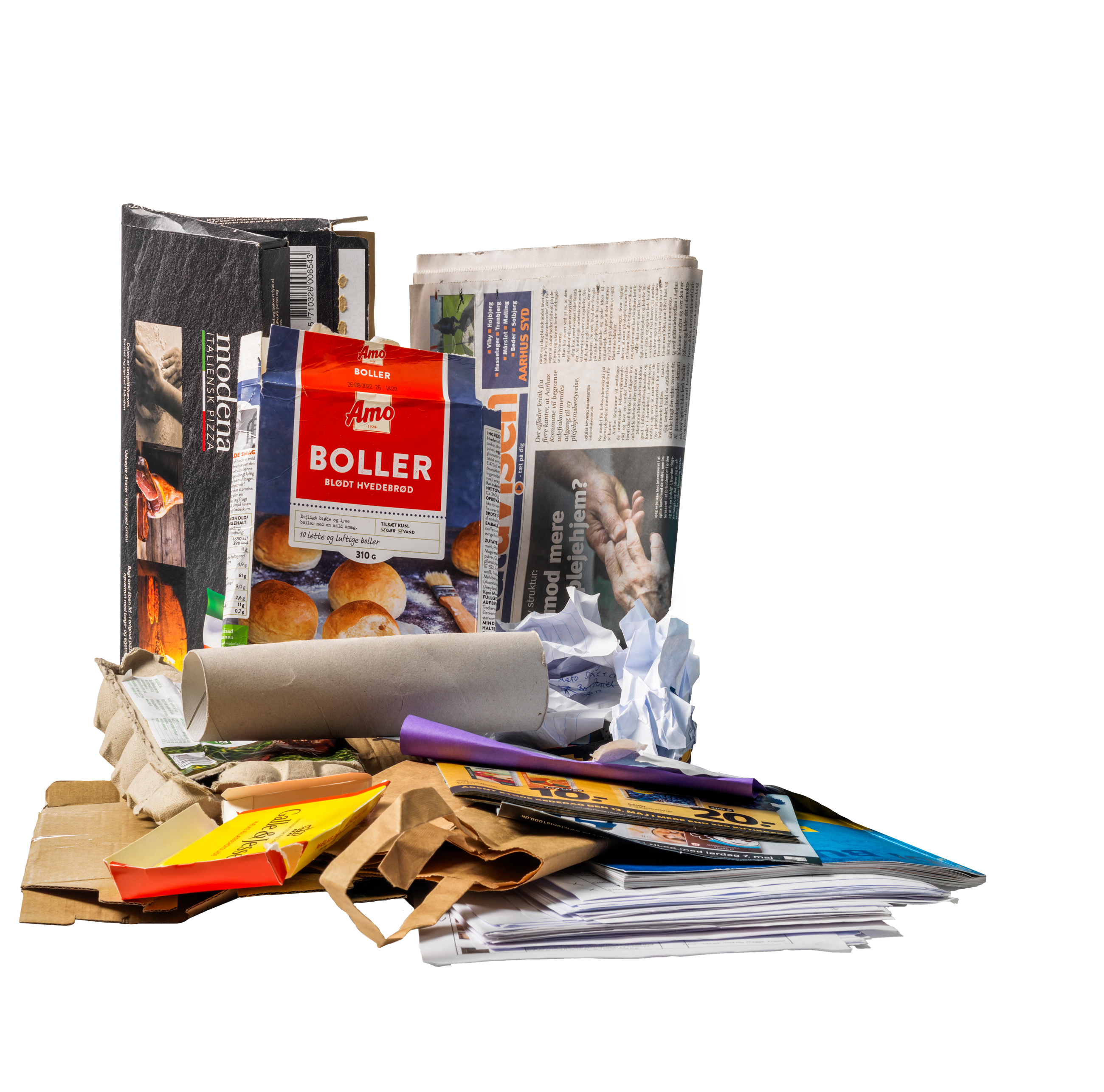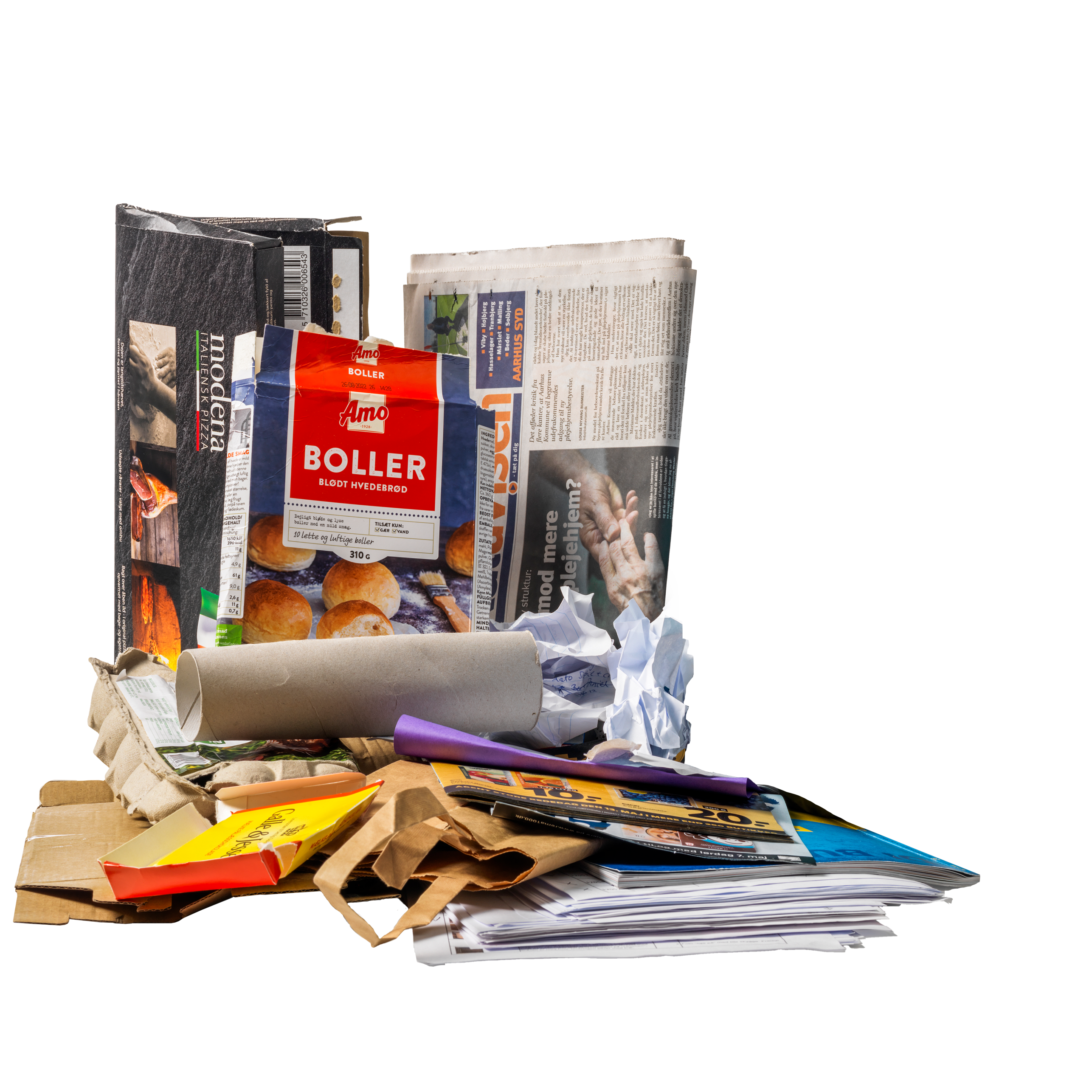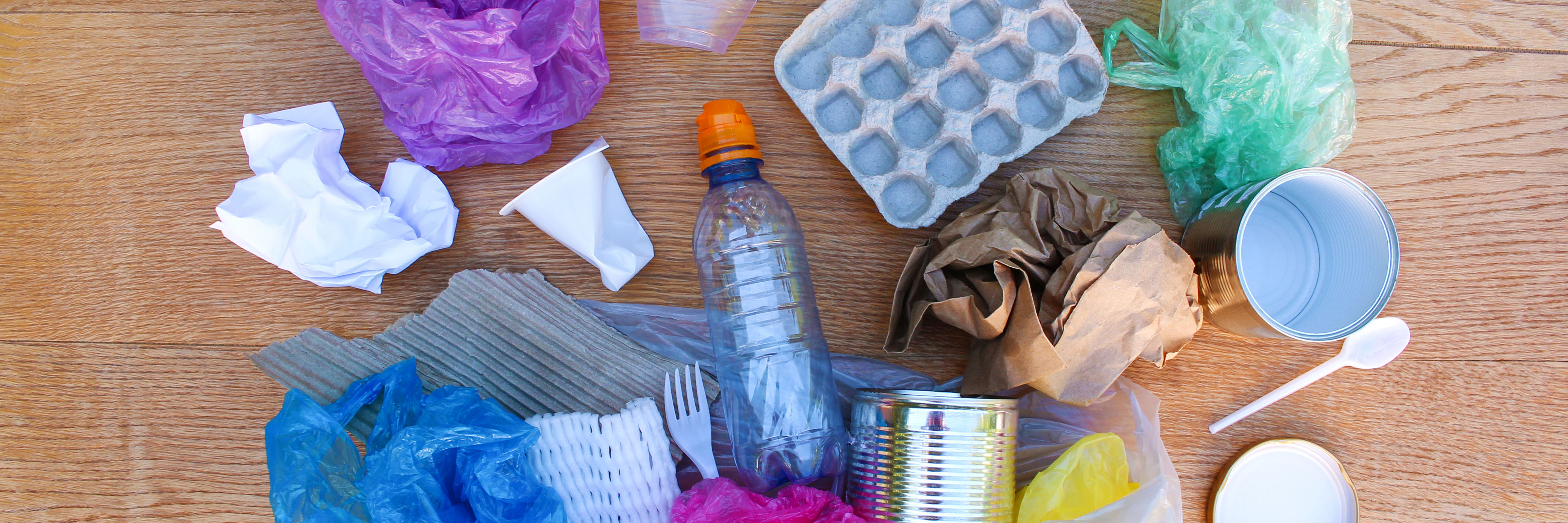
Household Recycling
In the Municipality of Randers we collect your paper, cardboard and packaging for recycling.
Every single household must have at least two bins for the recyclables: one bins with glass and metal in one compartment and in the other compartment plastic (both soft and hard) plus food- and beverage cartons. This is emptied every 3 weeks.
The second bin for recycables is for paper and cardboard. The cardboard should be ripped in smaller pieces, or it will potentially get stuck. If that happens we can't empty your bin. The paper and cardboard bin is only emptied every 4 weeks.
Bins for recycling do not cost anything - not even an administration fee. You can have as many bins for recycling as necessary. The bins have to be placed in the same place as your household waste bin.
NO! We don't mix it all up!
The bin lorry that collects your waste is divided into two compartments. This is why your bin is also divided into two. So there is no excuse for not doing it properly.
For a better and healthier work environment your recycling should be scraped clean of food.
Don't worry - it's quite simple once you get started!
It may all seem a bit complicated, but it really isn't. We know this from the people, who have already started sorting their waste into the four types of household waste.
Textile waste
Textile waste should be collected in a clear bin sack. It can be collected vis the municipal kerbside collection 11 times a year. But you must book a collection, before we can pick up from your home address. You can book your kerbside collection here.
The textiles, though waste, should be clean and dry before they are put in a bin sack. They will be sorted by people, so we have to protect their work environment.
Your old threadbare socks are still a resource
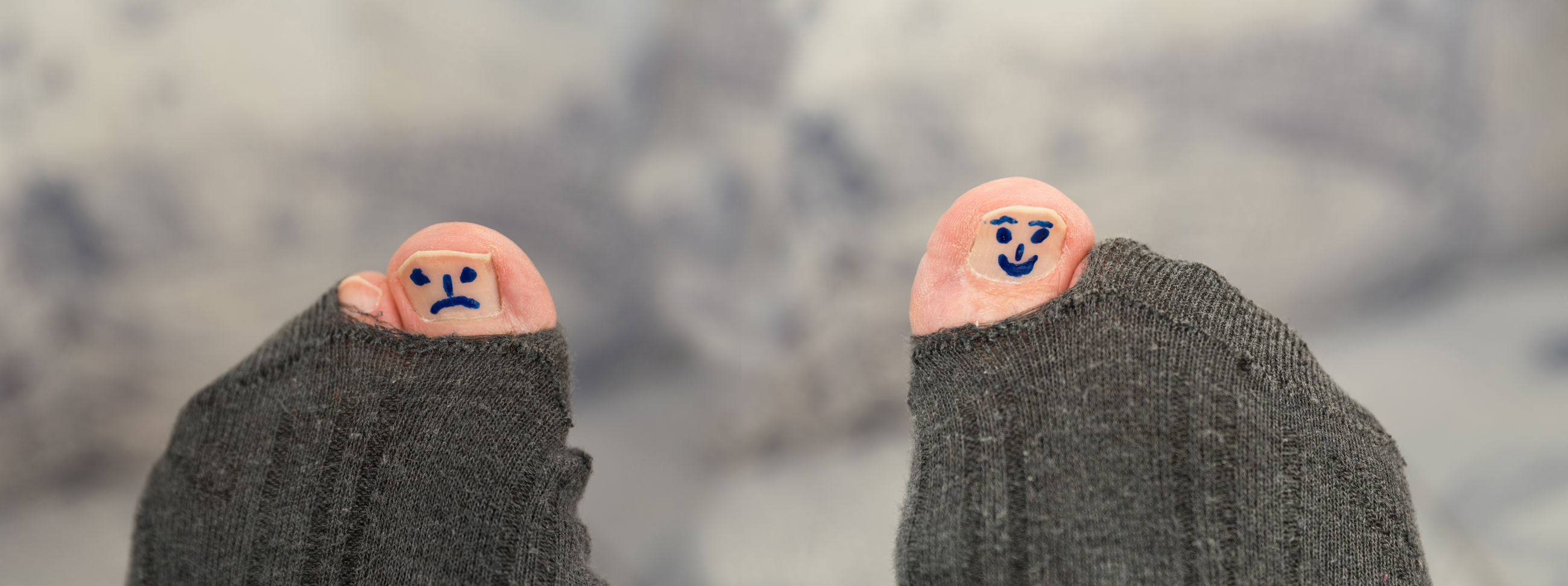
If your textiles have no more use in them, they should be recycled. The textile fibres can be made into new products.

If your textiles have no more use in them, they should be recycled. The textile fibres can be made into new products.
